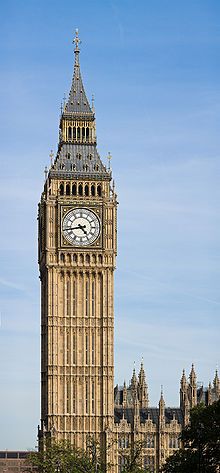The Moral Calculus of the Woolwich Murder, 2013 May 27
You should read a transcript of the Woolwich murderer’s reasons. It seems that he was offended by the fact that other Muslim civilians were routinely being murdered. Having been taught, by the state, that murdering is acceptable, he proceeded to do so.
He, however, proved himself superior to the contemporary American and British States by murdering a military man and not a civilian. He took far more care in choosing his victim than Obama does his.
So spare me the hand-wringing and condemnation. He’s a bad man, to be sure, but he’s not as bad a man as the men we put in office.
When Tony Blair and George W. Bush are put in front of war crimes trials, along with Rumsfeld and many others, we can talk. Till then, our “justice’ isn’t, it’s just tribalism dressed up in the name of justice, because it picks and chooses amongst murderers, letting the greatest of them, the ones with the most blood on their hands, walk free.
Ethical Degradation, 2013 May 28
We make distinctions between crimes, even the same crimes. Unintentional killing is ranked lower than intentional killing, and pre-meditated (planned) killing is ranked higher than crimes of passion (finding your husband in bed with another woman and killing him.)
We also make distinctions between people who kill one person, two people, three people and so on. A person who has killed more people, gets a longer sentence.
This is known as proportionality. All murders are not the same, nor are all thefts, nor are all acts of fraud. The amount of harm they cause varies, and the amount of punishment they are due varies by reason: we punish the woman who kills her cheating husband when she finds him in bed with another woman a lot less harshly than we do a cold calculating murder to get the life insurance reward.
…
The inability to make these sort of ethical distinctions, to say ‘well Fred killed one man, a military man, and that’s just as bad as Stalin killing millions” is an ethical failure. It is an abominable ethical failure. Scale matters and crime and justice are not boolean. More to the point, it is far more important to stop the mass murderers of this world, whether they are Stalin, Mao or lesser mass murderers (note the distinction!) like George Bush and Barack Obama.
…
To use one of the phrases of the day “this is why we can’t have nice things.” Specifically, this is why we cant have a justice system that works, a just foreign policy, politicians who aren’t monsters and citizens who aren’t complicit in mass murder. If you think what the Woolwich murderer did is anywhere close to as bad as what George Bush or Tony Blair did you are unable to make even gross ethical distinctions, and are unsuited to exercise the responsibilities of citizenship.
Tens of thousands of murders are worse than one murder. Understand this. If you can’t, recuse yourself from the public sphere, please.
Ethics 101, Part 3: Forseeable Consequences, 2013 May 28
Since we’re on basic ethics, let’s take another basic ethical principle. It is impossible to have a good society if you do not punish and reward people for the forseeable consequences of their actions.
…
The idea of forseeable consequences is fundamental to reasoning about ethics and morality. It is especially important in reasoning about public policy.
…
Entire countries have gone in to permanent depression as a result of the forseeable consequences of their actions. Then various countries, especially in Europe, doubled down on austerity. Austerity has never worked to bring an economy out of a financial crisis or depression, and it never will. It does not work, and this is well known. Engaging in austerity has forseeable consequences of impoverishing the country, reducing the size of the middle class and grinding the poor even further into misery. It also has the forseeable consequence of making it possible to privatize parts of the economy the oligarchs want to buy.
It is done, it has been done and it will be done because of those forseeable consequences. They are all either desirable to your masters or, if not desirable, irrelevant compared to the advantages austerity offers them.
These are, if not criminal acts, then unjust and evil acts, done to enrich a few at the expense of the many, with disregard for the consequences to the many, including death, hunger and violence.
One of the reasons I write so little these days, is that there is so little point. Basic ethical principles are routinely ignored even on the so-called left. Basic principles of causation are ignored. Basic economic reality is ignored. And virtually everyone in the so-called democracies is scrambling to pretend that they have no responsibility for anything that has happened.
If someone does something with forseeable consequences they are responsible for those forseeable consequences. Just because an act has bad forseeable consequences doesn’t mean it shouldn’t be taken, the alternatives may be worse, but whether the action should be taken or not, the decision has consequences.
…
As a society we have in the last few decades and are today making decisions with entirely forseeable consequences (as with climate change) that will kill a few hundred million people to well over a billion people. We know it will happen, and we’re doing it.
Ethics 101: The difference between ethics and morals, 2013 May 30
The best short definition I’ve heard, courtesy of my friend Stirling, is that morals are how you treat people you know. Ethics are how you treat people you don’t know.
Your morality is what makes you a good wife or husband, dad or mother. A good daughter or son. A good friend. Even a good employee or boss to the people you know personally in the company.
Your ethics is what makes you a good politicians. It is what makes you a statesman. It is also what makes you a good, humane CEO of any large company (and yes, you can make money and pay your employees well as Costco proves.)
When you’re a politicians or a CEO, most of what you do will effect people you don’t know, people you can’t know, people who are just statistics to you. You have no personal connection to them, and you never will. This is at the heart of Stalin’s comment that “a single death is a tragedy, a million deaths a statistic.” Change the welfare rules, people will live or die, suffer or prosper. Change the tax structure, healthcare mandates, trade laws, transit spending-virtually everything you do means someone will will, and someone will lose. Sometimes fatally.
…
We call the family the building block of society, but this is nonsense except in the broadest sense. The structure of the family is entirely socially based, generally on how we make our living. A hundred years ago in America and Canada the extended family was the norm, today the nuclear family is, with single parent families coming on strong. In China this transition, from extended to nuclear family, took place in living memory, many adults still in their prime can remember extended families, and were raised in them. The wealthy often have their children raised by servants (I was for my first five years), tribal societies often put all male children in to the same tent or tents at puberty, and so on. A hundred and fifty years ago children were taught at home, by the extended family, and not by professional teachers. They spent much more time with family until they were apprenticed out, if they were.
…
For a large society, a society where you can’t know everyone, to work ethics must come before morality, or ethics and morality must have a great deal of overlaps. By acting morally, you must be able to act ethically.
Our current ethical system requires politicians to act unethically, to do great harm to people they don’t know, while protecting those they do. This can hardly be denied, and was on display in the 2007/8 financial collapse and the bailout after. The millions of homeowners and employees politicians and central bankers did not know were not helped, and and the people the politicians and central bankers and treasury officials did know, were bailed out. Austerity, likewise, has hurt people politicians don’t know, while enriching the corporate officers and rich they do know.
The structure of our economy is designed to impoverish people we don’t know. For developed nations citizens this means people in undeveloped nations. For the rich this means cutting the wages of the middle class. For the middle class it means screwing over the poor (yes, the middle class does the day to day enforcement, don’t pretend otherwise.) We are obsessed with “lowering costs” and making loans, and both of those are meant to extract maximum value from people while giving them as little as they can in return.
We likewise ignore the future, refusing to build or repair infrastructure, to invest properly in basic science, and refusing to deal with global warming. These decisions will overwhelmingly effect people we don’t know: any individual infrastructure collapse won’t hit us, odds are, and global warming will kill most of its victims in the future. The rich and powerful, in particular, believe that they will avoid the consequences of these things. It will effect people other than them.
To put the needs of the few before the needs of the many, in public life, is to be a monster. But even in private life if we all act selfishly, as our reigning ideology indicates we should, we destroy ourselves. If we all put only ourselves and those we love first, and damn the cost to everyone else, our societies cannot and will not be prosperous, safe, or kind.
The war of all against all is just as nasty when it is waged by small kin groups as when it is waged by individuals.

 On this day in 1859,
On this day in 1859,  The main bell, officially known as the Great Bell, is the largest bell in the tower and part of the Great Clock of Westminster. The bell is better known by the nickname Big Ben.
The main bell, officially known as the Great Bell, is the largest bell in the tower and part of the Great Clock of Westminster. The bell is better known by the nickname Big Ben. The main purpose our blogging is to communicate our ideas, opinions, and stories both fact and fiction. The best part about the the blogs is information that we might not find in our local news, even if we read it online. Sharing that information is important, especially if it educates, sparks conversation and new ideas. We have all found places that are our favorites that we read everyday, not everyone’s are the same. The Internet is a vast place. Unlike “
The main purpose our blogging is to communicate our ideas, opinions, and stories both fact and fiction. The best part about the the blogs is information that we might not find in our local news, even if we read it online. Sharing that information is important, especially if it educates, sparks conversation and new ideas. We have all found places that are our favorites that we read everyday, not everyone’s are the same. The Internet is a vast place. Unlike “
Recent Comments